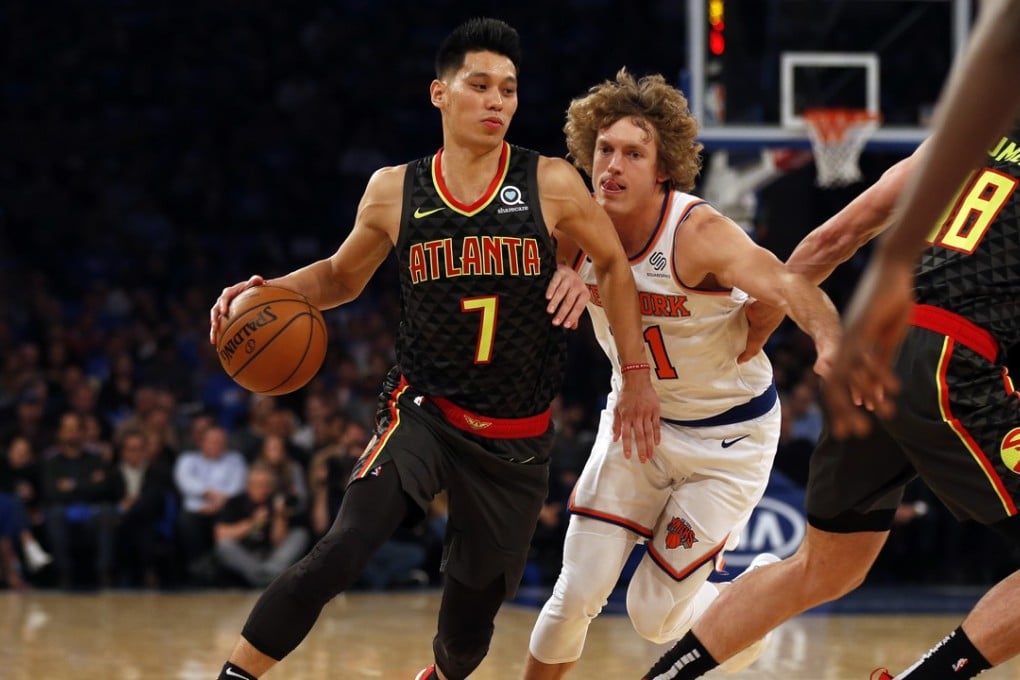Advertisement
NBA star Jeremy Lin tells Stephen J Dubner of Freakonomics Radio about fans, injury frustrations and the future
- Atlanta Hawks guard has just made return to court 364 days after injuring knee
- Harvard economics graduate explains diverse investments and future plans
Reading Time:4 minutes
Why you can trust SCMP

It is now six years and nearly as many basketball teams since “Linsanity” struck for Jeremy Lin.
Now at the Atlanta Hawks, where he was traded from the Brooklyn Nets in July as part of a salary dump, the 30-year-old is back in NBA action.
In their season-opener last week the Hawks were at Madison Square Garden, the venue where he came to the public consciousness with his superstar stats with the Knicks during 2012.
Advertisement
That game marked Lin’s first for 364 days since injuring his knee with the Nets.
Lin got his first minutes for over a year scoring eight points, five rebounds, a steal and an assist in 14 minutes. He has since played 17 minutes against the Memphis Grizzlies and then another 10 minutes on Sunday night when the Hawks beat the Cleveland Cavaliers for their first win of the season as he looks to put the last year behind him.
Advertisement
Advertisement
Select Voice
Select Speed
1.00x